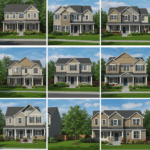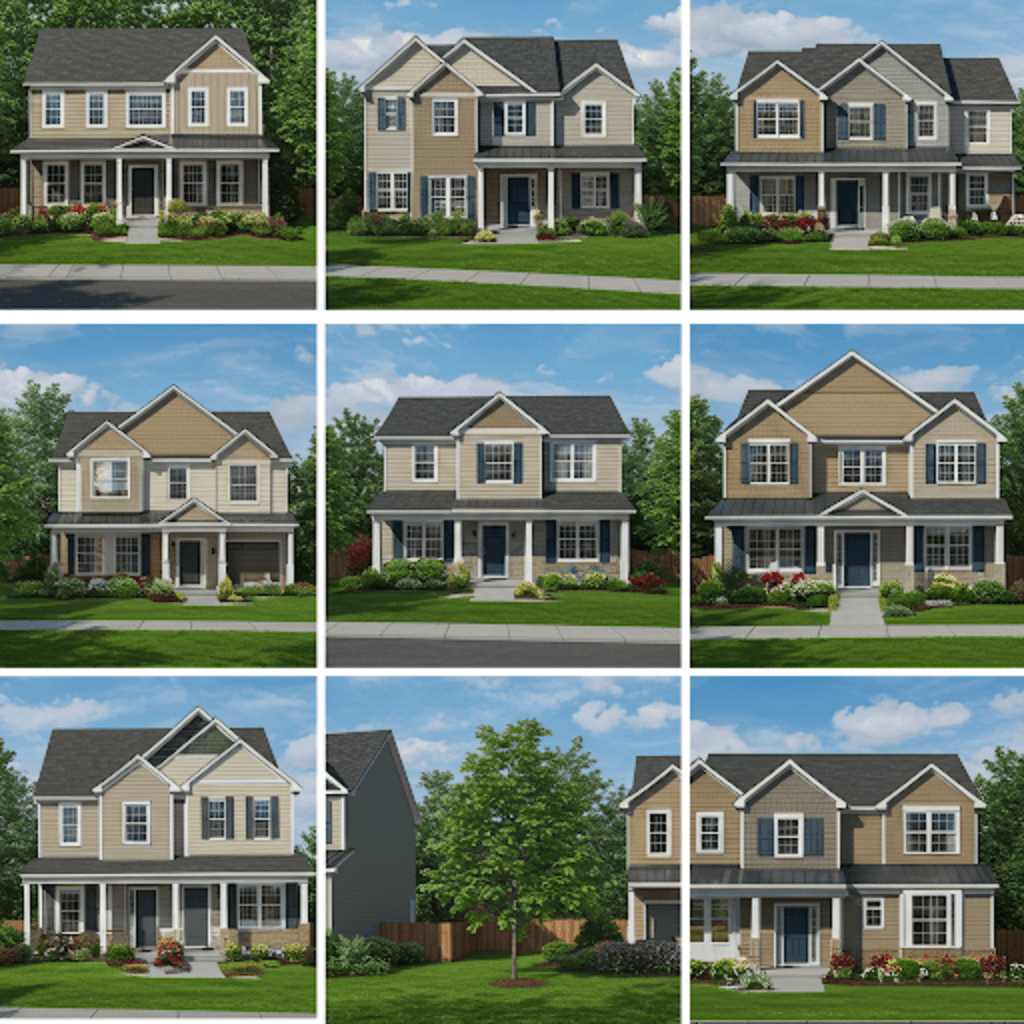
Navigating the exciting world of new homes for sale
The American dream of homeownership is alive and well, and for many, that dream includes a brand-new home. Stepping into a pristine space, untouched by previous owners, with modern amenities and the freedom to personalize, holds a unique appeal. But the journey to owning a new construction home can be significantly different from buying an existing property. This comprehensive guide will walk you through the process, offering insights and advice to help you make informed decisions every step of the way.
Why choose a new construction home?
Beyond the obvious allure of being the first owner, new construction homes offer several compelling advantages:
- Customization: One of the biggest draws is the ability to personalize your home. Depending on the stage of construction, you may be able to select finishes, flooring, cabinetry, countertops, paint colors, and even structural options like adding a sunroom or expanding the kitchen.
- Modern amenities and technology: New homes are built to meet current building codes and often incorporate the latest technology, such as smart home features, energy-efficient appliances, and advanced wiring for high-speed internet.
- Lower maintenance costs: With everything brand new, you’re less likely to face major repairs or replacements in the first few years. This can translate to significant savings compared to older homes that may require immediate upgrades or fixes.

- Energy efficiency: New homes are typically built with energy-efficient materials and systems, leading to lower utility bills and a smaller environmental footprint. This includes better insulation, high-performance windows, and efficient HVAC systems.
- Warranties: New homes usually come with builder warranties that cover workmanship and structural defects, providing peace of mind and protection against unexpected expenses.
- Community amenities: Many new construction homes are located in planned communities that offer amenities like swimming pools, clubhouses, fitness centers, parks, and walking trails.
Finding your perfect new home
The search for a new home begins with defining your needs and priorities. Consider the following:
- Budget: Determine how much you can comfortably afford. Remember to factor in not only the purchase price but also property taxes, insurance, homeowner association fees (if applicable), and potential closing costs. Get pre-approved for a mortgage to understand your borrowing power.
- Location: Think about your lifestyle and what’s important to you. Do you prefer a bustling urban setting, a quiet suburban neighborhood, or a rural retreat? Consider proximity to work, schools, shopping, dining, and recreation.
- Size and layout: How much space do you need? How many bedrooms and bathrooms? Do you prefer an open floor plan or a more traditional layout? Think about your current needs and potential future growth.
- Builder reputation: Research different builders in your desired area. Read online reviews, talk to current homeowners, and visit model homes to assess the quality of their work and their customer service.
The buying process: A step-by-step guide
Once you’ve identified potential communities and builders, the buying process typically involves these steps:
- Visit model homes and sales centers: This is your chance to see the builder’s work firsthand, explore different floor plans, and ask questions about the community and the construction process.
- Choose a lot and floor plan: Once you’ve found a community you like, you’ll select a specific lot and the floor plan that best suits your needs.
- Negotiate the contract: Work with a real estate agent experienced in new construction to negotiate the purchase agreement. This contract will outline the price, included features, upgrades, construction timeline, and other important details.
- Secure financing: If you haven’t already obtained pre-approval, now is the time to finalize your mortgage application.
- Design selections: If you’re buying early enough in the construction process, you’ll have the opportunity to choose your finishes and upgrades at a design center.
- Construction process: The builder will begin construction on your home. Stay in communication with your builder and your real estate agent throughout the process to monitor progress and address any questions or concerns.
- Pre-drywall inspection: Before the drywall is installed, you may have the opportunity to conduct a pre-drywall inspection with a qualified home inspector. This allows you to identify any potential issues with the framing, plumbing, and electrical systems.
- Final walkthrough: Before closing, you’ll do a final walkthrough of the completed home with the builder to ensure everything is built to your specifications and any agreed-upon punch list items are addressed.
- Closing: Once everything is complete, you’ll sign the final paperwork and officially become the owner of your new home!
Important considerations for new construction
While buying a new home is exciting, there are a few unique considerations to keep in mind:
- Construction delays: Building a home is a complex process, and delays can happen due to weather, material shortages, or other unforeseen circumstances. Be prepared for potential delays and maintain open communication with your builder.
- Upgrade costs: It’s easy to get carried away with upgrades at the design center. Be mindful of your budget and prioritize the features that are most important to you. Remember that some upgrades can be added later after you move in.
- Landscaping: New construction homes often come with minimal landscaping. You may need to budget for additional landscaping costs to create the yard you desire.
- Property taxes: Property taxes on new construction homes can sometimes be higher than on existing homes, especially in developing areas where infrastructure is still being built.
- Homeowner association (HOA) fees: If your new home is in a planned community, you’ll likely have to pay monthly or annual HOA fees. These fees cover the maintenance of common areas and amenities. Be sure to understand the HOA rules and regulations before you buy.
- Builder incentives: Builders often offer incentives to attract buyers, such as closing cost assistance, upgrades, or appliance packages. Be sure to ask about any available incentives.
Working with a real estate agent
While you can purchase a new construction home directly from the builder, working with a real estate agent who specializes in new construction can be invaluable. An experienced agent can:
- Help you find communities and builders that match your needs and budget.
- Negotiate the purchase agreement on your behalf.
- Advise you on upgrades and design selections.
- Monitor the construction progress and advocate for your interests.
- Help you navigate the closing process.
- Importantly, the builder typically pays the buyer’s agent’s commission, so you get expert representation at no cost to you.
The Future is Bright: Embracing Homeownership
Buying a new home represents a significant investment, and starting fresh with a new construction. By understanding the various choices, procedures, and possible difficulties, you’ll be well-prepared to confidently handle the trip. The process of buying a new home might provide you a place that genuinely embodies your idea of the perfect house, with careful planning and the correct support.
Long Term Value and Considerations
When investing in new home consider future needs.
- Resale Value: Consider the long-term resale value. While predicting the future is impossible, choosing a desirable location and a well-built home from a reputable builder can help protect your investment.
- Future Improvements: Think about any future improvements you might want to make. Ensure any HOA regulations will not hinder reasonable modifications.







